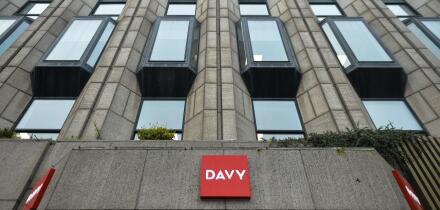
“Hybrid capital is the most strategically important product that any European corporate will execute in debt capital markets,” says William Weaver, head of EMEA debt capital markets at Citi. “And it’s a product in which we have deliberately invested, building a team with market-leading hybrid structuring expertise.
“Having seen around 60% of hybrid capital issuance volumes come through our European syndicate desk gives us an invaluable knowledge of the investor universe.”
Citi has eight hybrid capital bankers based in London, comprising possibly the most seasoned team in the industry, and it was in a strong position in the aftermath of the market turmoil following the outbreak of the coronavirus pandemic in Europe.
The immediate need for corporate borrowers had been to secure liquidity but issuers soon pivoted to balance sheet-strengthening transactions. It meant issuers large and small wanted to take advantage of the cost savings of as much as 450bp over a comparable blend of senior debt and equity.
The team’s commitment to the full range of issuers was illustrated in that first, post-crisis window in the market, working not just on deals like BP’s blockbuster five tranche, triple currency debut but also in the way it reopened the European market with Swiss chemicals firm Firmenich.
“It wasn’t an obvious name to reopen the market, but we spent a month with them monitoring conditions for the right window to introduce that transaction and they had the fortitude to navigate that market,” says Tomas Lundquist, head of European corporate DCM.
“Coming during such a super-volatile market, it required a lot of work engaging investors in a virtual environment, and at the same time preparing the issuer amid all of the lockdown constraints.”
That post-reopening period demonstrated Citi’s market leadership in the product: it was a bookrunner on every post-Covid ‘first’ on the screens: the first US corporate hybrid (for CMS Energy), the first corporate hybrid refinancing and tender (for Repsol) and the first dated corporate hybrid (for Deutsche Börse).
And it took that dominance into 2021 when, in January, for instance, the bank brought repeat issuers such as Iberdrola, Total and in the first green hybrid of year, EDP, as well as leading a debut hybrid for oil-and-gas issuer Wintershall Dea.
The team’s success ultimately comes from the relationships it has built with issuers. Getting hybrid capital right takes product expertise and distribution capability, but also long-term work with issuers on capital structure analysis and advice, says Simon McGeary, head of capital strategy and structuring.
“These deals don’t happen in a short period of time. A lot of what we do is advisory work — investing in the trusted advisor relationship,” he says.
Citi is also able to call on the expertise of its global platform, says McGeary: “We make sure that knowledge transfer happens across our teams in Europe, the Americas and Asia, from market to market.”
Part of that knowledge is in sustainable finance where green hybrids are taking an ever-larger share of issuance. So far in 2021, green-labelled deals have accounted for €5.6bn out of the €19.8bn issued, or 28% of the market, up from a five year average of 12%.
“The big change over the last 12 months is that ESG themed instruments are delivering a tangible pricing advantage,” says Weaver. “It’s a reflection of the increased demand for the asset class from dedicated funds and mainstream investors.”
McGeary is particularly proud of the bank’s record in bringing inaugural issuers to the market over the years. “We’re here to hold clients’ hands right through the transaction, structuring the instruments and the documentation, then helping them through the rating agency process and spending time on the investor presentation and Q&A so that they are well prepared for their engagement with investors during the roadshow.
“It’s a much more intensive process with a debut issuer than one that is doing it for the fifth or sixth time, but it’s very rewarding.”






